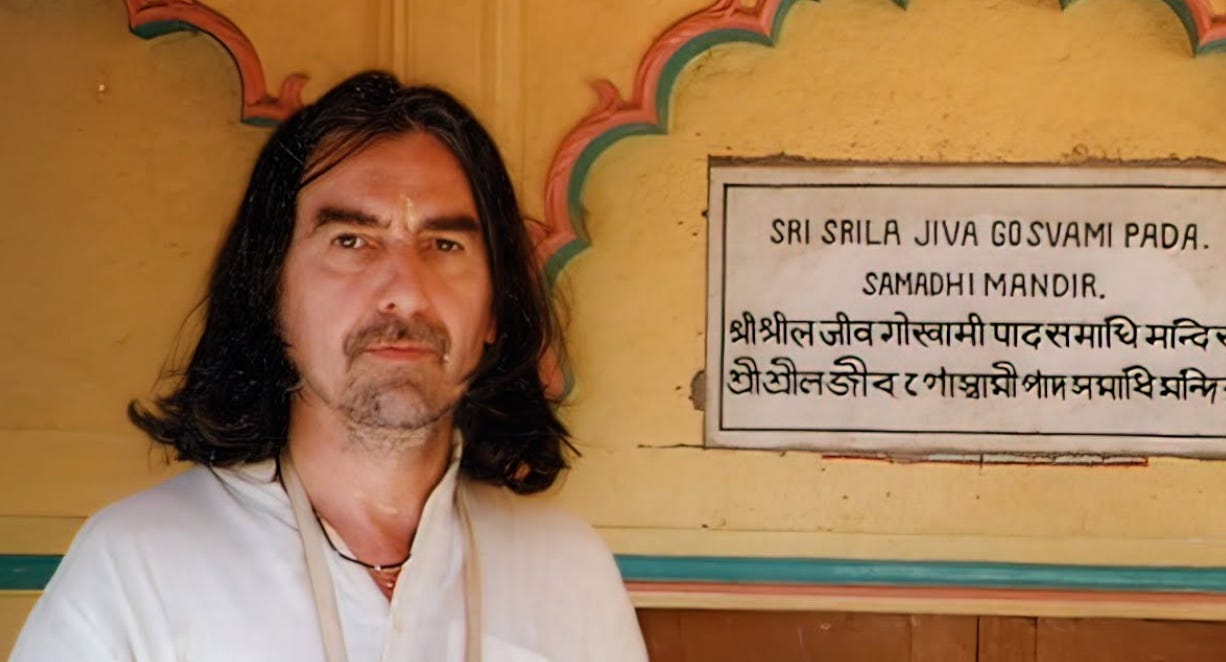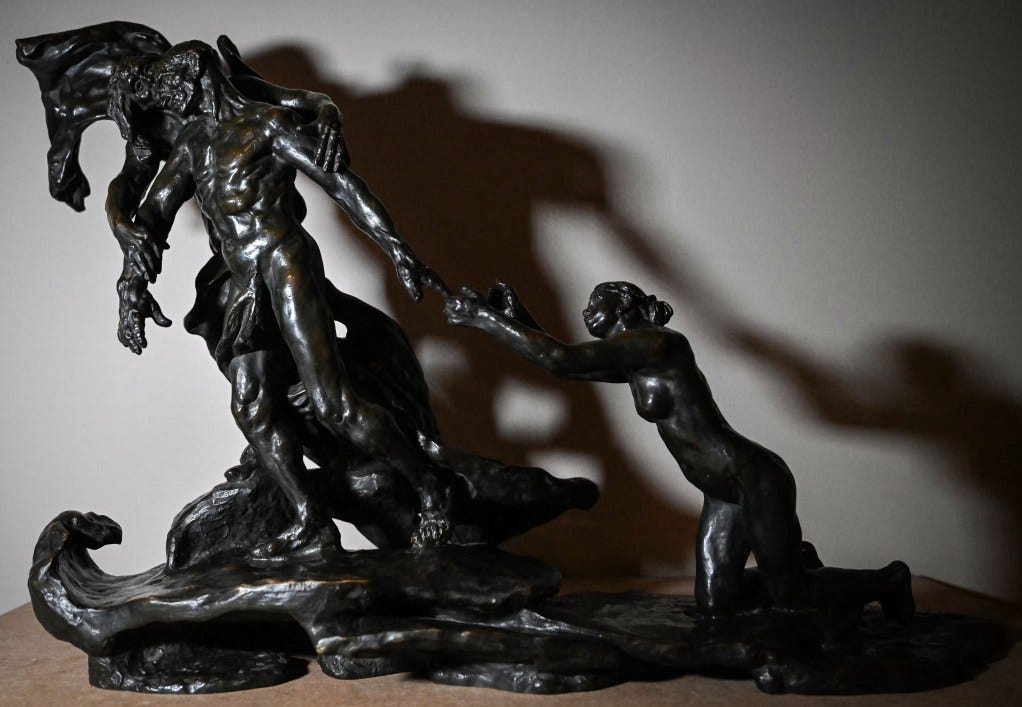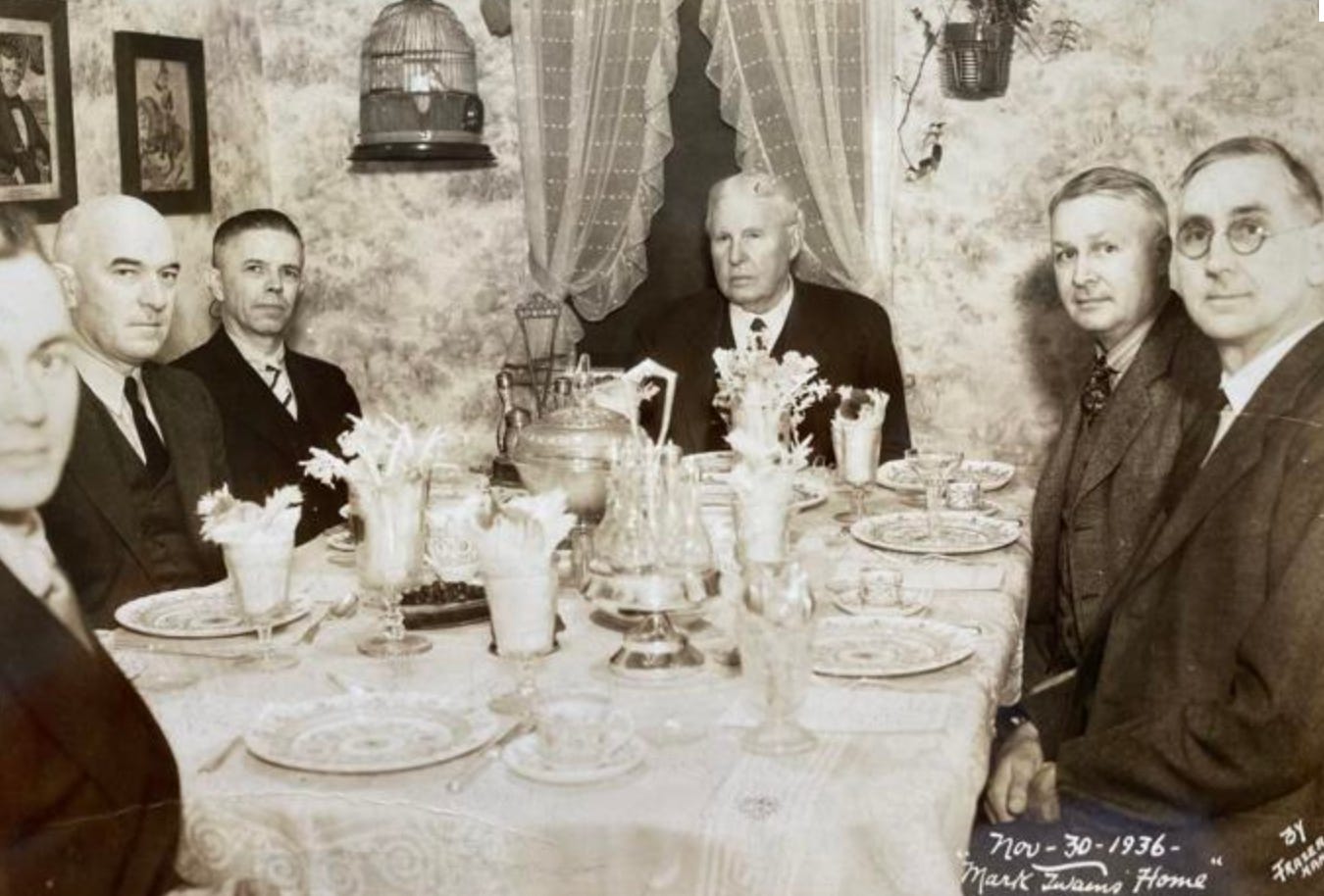Sketching The Days With George
“It’s all right if you grow your wings on the way down.”― Robert Bly
The Gories, A Beatle and the Art of Washing Windows Pt. 2
(to be read following the previous Signal)
I am not a huge Beatles fan and I rarely have a desire to listen to their music (OK…once in a while I throw on Abby Road). I burnt out on them before I was ten, having two older brothers who played their records all of the time. Yes, I dug them initially, loved the movies Help! and Yellow Submarine (loved watching the latter with my kids), but soon after I started to discover harder stuff and The Beatles were beat to me. I was introduced to The Who…now that was blazing rock n roll…and the wide world of the Rolling Stones. Then came The Clash, The Jam and The Damned. The Beatles, to my ears, were a studio exercise opposed to the rock and roll that was on the loose on my turntable.
This opinion is a polarizing one, and has gotten me a lot of side-eyes over the years: a snobbish, useless-pushing-against-the-grain attention-getting stance, many think. But I am just not that interested in The Beatles; it comes up a lot…because they come up a lot.
This all went through my mind as I stood in Lenny Waronker’s office with a Gories demo tape deal memo in my hand staring at George Harrison as he sat behind Lenny’s desk, owning the room.
“You’re not Lenny,” I said.
“You aren’t either,” he said, in that Beatles/Liverpool accent they made world famous, “What are you wanting with Lenny?”
“I’m looking for some money,” I said, holding up the memo as if he would magically understand the situation.
“I am as well,” he said. “How much are you looking for?”
“Um….I am looking for $500,” I said
“$500?” he took a beat, staring at me with that friendly, knowing gaze, “I am looking for a whole lot more than that.”
We chuckled together, I told him to have a great day…that it was nice to bump into him, and left the office. Lenny’s assistant Gayle, who had continued to try and airport marshal me out of the room as soon as I entered, let out a long, thankful breath as I walked out. Phew, I didn’t seem to cause any problems.
The next day, as I was walking down the stairs from the second floor to the lobby of the building, George happened to be walking up. He stopped me, smiled, and asked me if I got the money I was looking for (I had) and I asked him if he had (still in progress). He was heading off to a studio to do some recording, I was about to go into my office to hear some Flaming Lips masters. That sounded great, he said.
This went on for a few weeks, George and I bumping into each other, becoming more familiar, exchanging sketches of our days. It was about a year before he was diagnosed with cancer and about four years after The Traveling Wilburys’ second record. He was such a charismatic individual with his laid-back knowing gaze, toothy warm smile and flowing grown-out ever-so-slightly-brown hair. He was working on a song and plotting a next project, which might have been the recording he would eventually make with Paul McCartney and Ringo Starr around a Beatles anthology. That sounded great, I said.
A month or so after our last encounter, legendary Warner Bros. Records artist relations man Clyde Bakkemo came into my office and pulled up a seat. Clyde was a hip bespeckled gentleman from a bygone age, cropped hair, wearing a tailored suit and a gentle demeanor, “George Harrison called,” he said, “he asked if that ‘young guy David’ in the A&R department would do him a favor.” George wanted me to take a meeting with his nephew, Gordon, who had some songs he wanted to present.
Gordon Caldwell was a window washer in Florida. When growing up he met George once, when the Beatles first toured the United States in the 1960s. Gordon recently showed up at George’s house in Hawaii, where he knew his famous uncle was staying, trying to get an audience with him. Instead, George flew him out to Burbank, to meet with the Warner Bros. A&R department. To meet with me.
Gordon was a fit, unassuming guy in his late thirties, whose brown hair color was the only thing that might have linked him genetically to George. He came with the picture he had of George and himself at their meeting in the 60s. He had been washing windows recently when he got to thinking: if his uncle could write songs that became super successful, maybe he could to. Why not. He handed me a tape of the first track he wanted me to hear, a pop ditty called, When I’m Washing Windows. The three minute upbeat pop number was not commercial, but was catchy (I could sing it to you now). Tattooingly catchy, like an advertisement jingle catchy. The b-side of the tape was more of a journey than your typical song, a nine-minute meditation on how Santa Claus and Jesus might be the same person. You never see them together, they both have beards, and they both make the world a sweeter place. Who really knows (and happy holidays everyone).
We talked for a while about what Gordon could do to hone his craft: more practice, more writing, more studying the nature of a song’s structure. We agreed he could send me more songs as he wrote them, and I could give him constructive feedback. I let Clyde know how the meeting went, who let George know; both of them were happy I was willing to keep in contact with Gordon. For the next few years I received other tapes from Gordon, which I still have somewhere in the basement. He wasn’t a George Harrison caliber songwriter, but he loved the act of songwriting. After a while, Gordon e-mailed me that his son had joined a speed metal band, and asked if I would be willing to listen to his music as well. Of course, I said. Like the songs or not, Gordon was a Beatles-related artist and should be treated like one (and I liked the guy) as his son should be, whose music was solid for said heavy genre (nothing close to anything a major label would know what to do with).
I had not heard from Gordon for a few years, and was long gone from my job at Warner Bros. Records, when I got an e-mail from his wife that he had passed away after a bout of cancer. She thanked me for being the only one outside his family who took his music seriously. The truth is, and it is something I learned from my boss Roberta Petersen, when you are listening to music given to you by its creator, someone who is pursuing a passion that drives them to create, the job of the A&R person is not to say something that would hinder the artistic pursuit—no matter what level the music is at. The job is to be kind, offer suggestions, and give the musician a reason to continue evolving his or her craft. It is simply the humane thing to do AND who knows what brilliance might come later. Stranger things have happened, especially from someone related to a person who wrote What Is Life, Here Comes The Sun, and While My Guitar Gently Weeps.
And you better believe George is my favorite Beatle…whatever that means! And The Stones (and yes The Who, Jon Blaufarb), are still better.
End of Part Two. Stay Tuned for the Epilogue and the strange, sometimes brilliant, case of Mick Collins.
Sugar Pie DeSanto, Larger-Than-Life R&B Performer, Dies at 89
Sugar Pie was one of the last (the last?) of the great classic 50s RnB singers. She grew up with Etta James, both being “discovered” by Johnny Otis (who gave her the name Sugar Pie), DeSanto became a successful recording artist for Chess Records before heading back to the Bay where she regularly performed, for decades, until just recently. As you can see in vintage footage of her singing Rock Me Baby in the 60s, Sugar Pie was a spicy singer, great performer with a gritty voice. She leaned into the grit and raunch as she got older, fearless onstage with a voice that never quit. Her performance at The Stern Grove Festival in 2014 was jaw-dropping, as most were…with the large audience getting a taste of her still powerful vocal chords and explicit dance moves. She was a jewell of San Francisco.
As psychedelics are becoming more accepted, institutions like UC Berkeley are creating curriculum for their students to learn about them, and research opportunities. This podcast is FASCINATING..and another great resource to get an educated view (along with unanswered questions) about the new universe we are dipping our toes into: “Psychedelics are now at the center of a global conversation about mental health, religious mysticism, and even how we experience life and death. In Altered States—a new podcast from PRX and the UC Berkeley Center for the Science of Psychedelics—host Arielle Duhaime-Ross explores the stories and debates about who should have access to psychedelics, who should profit from them, how they should be used, regulated, and experienced, and what they might offer to both individuals and society.”
The Ghosts in the Machine: Spotify’s plot against musicians
Journalist Liz Pelly takes a deep dive into the startling allegations that Spotify is (no…not surprising) gaming its system: “Spotify, the rumor had it, was filling its most popular playlists with stock music attributed to pseudonymous musicians—variously called ghost or fake artists—presumably in an effort to reduce its royalty payouts. Some even speculated that Spotify might be making the tracks itself.” This is a story that needs to be read and passed on.
Michael Palin Q&A: “When was I happiest? On stage with Monty Python”
This short but sweet interview is behind a fire wall but available for free after creating a free account.
Lost sculpture by Rodin’s spurned lover found in empty Paris flat
“It was found in September by Matthieu Semont, the French auctioneer, after he was asked to provide a probate value of the contents of a flat near the Eiffel Tower that had been uninhabited for years.”
Walker’s expertise tapped to decorate Twain’s home
This is a strange article I fell upon recently. To start: the Charles Walker mentioned in the title, who was an antique collector, has been dead for 56 years, and was “tapped” in 1936 to provide decorations for a luncheon in Hannibal celebrating 101 years of Mark Twain’s birth (doesn’t the title make it feel that this is current nws?). The picture of the luncheon is above: looks like a blast, right? The article goes into such detail about who showed up to what event and who loaned what antique to what decoration project that came next, all involving Twain sites in the area, all collected from areas around Hannibal. A peculiar deep dive.

San Francisco’s Art Scene Is Thriving, In Spite of ‘False Doom Narrative’
While I am not sure I totally by the “thriving” aspect of the article, it is great to see (and hear) that there is still are left in San Francisco and the smaller galleries are the places where exciting curation and discovery is happening.
There Came a Day
By: Ted Hughes
There came a day that caught the summer
Wrung its neck
Plucked it
And ate it.
~
Now what shall I do with the trees?
The day said, the day said.
Strip them bare, strip them bare.
Let´s see what is really there.
~
And what shall I do with the sun?
The day said, the day said.
Roll him away till he´s cold and small.
He´ll come back rested if he comes back at all.
~
And what shall I do with the birds?
The day said, the day said.
The birds I´ve frightened, let them flit,
I´ll hang out pork for the brave tomtit.
~
And what shall I do with the seed?
The day said, the day said.
Bury it deep, see what it´s worth.
See if it can stand the earth.
~
What shall I do with the people?
The day said, the day said.
Stuff them with apple and blackberry pie –
They´ll love me then till the day they die.
~
Then came this day and he was autumn.
His mouth was wide
And red as a sunset.
His tail was an icicle.
Happy 110th birthday to composer Dezider Kardoš











Thank you, David! I enjoy every The Signal! I wish you, Barb, and the kids (and the Extendeds) the Jolliiest of Seasons. Peace On!